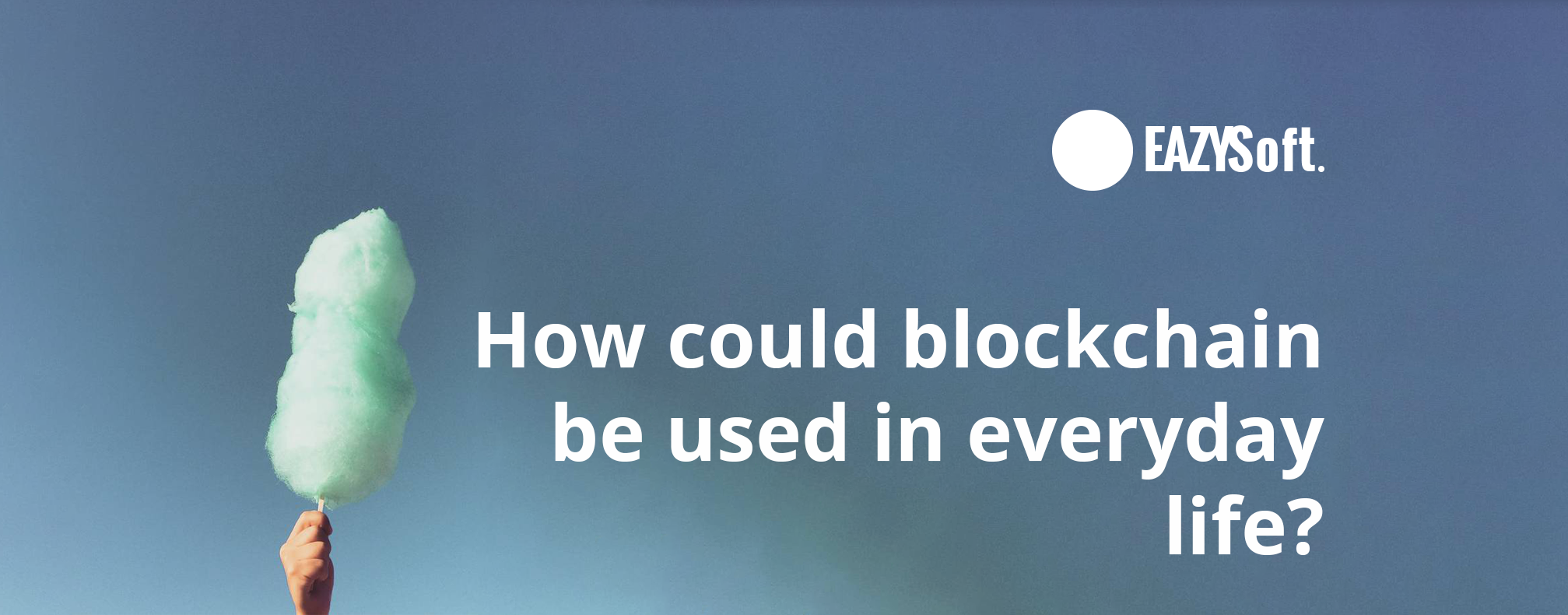
How could blockchain be used in everyday life?
Contracts, transactions, and the records of them are among the defining structures in our economic, legal, and political systems. They protect assets and set organizational boundaries. They govern interactions among nations, organizations, communities, and individuals. They guide managerial and social action. And yet these critical tools and the bureaucracies formed to manage them have not kept up with the economy’s digital transformation. They’re like a rush-hour gridlock trapping a Formula 1 race car. In a digital world, the way we regulate and maintain administrative control has to change. Blockchain promises to solve this problem.
Blockchain is poised to change IT in much the same way open-source software did a quarter of a century ago. And in the same way that Linux took more than a decade to become a cornerstone in modern application development, Blockchain will take years to become a lower cost, more efficient way to share information between open and private networks.
The potential use for the blockchain is vast. It could be applied to almost any form of record-keeping, agreement, contract or register. Governments of some european countries have started exploring how it could use the blockchain for public services. Here are just a few of the ways blockchains are being used or could be used in future.
Contract management and smart contracts
Any industry heavily reliant on contracts, such as insurance, financial institutions, real estate, construction, entertainment and law, would benefit from blockchain’s indisputable way to update, manage, track and secure contracts. Smart contracts, those that are embedded with if/then statements and be executed without the involvement of an intermediary, also use blockchain technology.
Decentralised internet
Programmers are currently working on decentralised internet platforms to distribute all the functions of the internet over distributed nodes which will increase the resiliency of the world wide web.
Decentralised markets
One challenge with cryptocurrencies such as Bitcoin is the need to trade on centralised exchanges which can be shut down or hacked. Decentralised markets allow trading without having to trust a third party.
Supply chain management
Whenever value changes hands or the status of asset changes, blockchain is ideally suited for managing the process. That’s why some experts believe blockchain can become a “supply chain operating system.” Blockchain allows for immediate status updates and increases the security and visibility of the supply chain. It provides any industry that needs to track a processor supplies—ultimately that’s most industries—an immediate and indisputable tracking system.
Identification, personal record systems and passwords
Governments manage vast amounts of personal data from birth and death records to marriage certificates, passports and census data. Blockchain technology offers a streamlined solution for managing all of it securely. Personal identification is what Onename, a blockchain startup wants to manage. In addition to offering services to register and manage a blockchain ID, the company offers a product called Passcard that they intend as a digital key to replace all passwords and IDs required for individuals, including driver’s licenses.
Distributed cloud storage
Distributed cloud storage avoids the need to place faith in large centralised companies where personal data is vulnerable and pricing may escalate to cover the expanding number of data servers.The idea is that most storage out there is unused, from “hard drives in basements to data centres”, while rewarding making unused storage available with tokens.
Passenger screening
Various airports around the world are looking to blockchain to assist in passenger processing. By using secure single tokens, travellers might be able to pass through airports and between borders easier and without the need for multiple travel documents, or with the use of biometrics, all requiring less personal data.
Proof of ownership
Items that are purchased could be tracked on the blockchain to demonstrate proof of ownership and to prevent the sale of stolen goods which may eventually help to reduce crime.
Authenticated voting
Online voting adoption has yet to take off, mainly due to fears that it is insufficiently secure. Some argue the blockchain could change that thanks to its immutable, transparent nature. Blockchain voting technology is verifiable and would allow anybody to audit the blockchain to confirm votes are time stamped and legitimate.
There are many other practical uses cases for blockchain technology for our everyday life and business operations. As the investments in blockchain solutions start to yield results in the way of innovative blockchain-enabled products and services, we will continue to see the practical applications of the technology exponentially expand.
